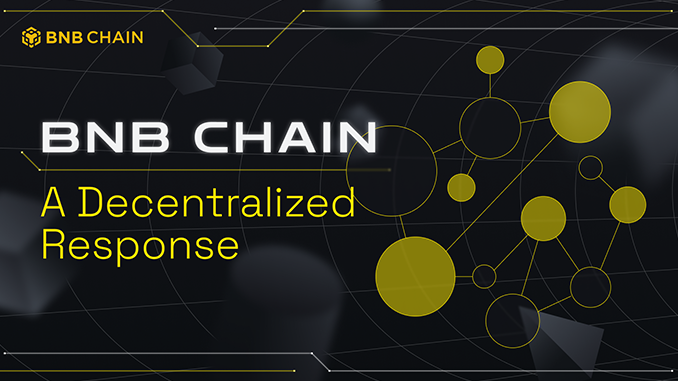
Last week, a large-scale hack shocked the BNB Chain. Temporarily, the heart of the ecosystem around Binance Coin had to be shut down. Now an upgrade is live and regular operations have resumed.
On October 7, the Binance Smart Chain (BSC) experienced the first emergency shutdown in its history. The reason was the exploitation of a security vulnerability in a bridge from the BSC to the BNB Chain, the two blockchains are lynchpins in the Binance Coin (BNB) ecosystem. An official report on the incidents explained at length how the damage was limited to around $100 million and why customer funds were not affected by the hack. But just as important, the BSC is fully functional again, as the team reports on Twitter.
According to the report, an upgrade for the Node software has been successfully deployed and finally allows Binance Coin and BSC-based altcoins to be deposited and withdrawn again. What becomes clear from looking back at the hack: The amount of damage could have been over $500 million if not for a quick and coordinated intervention of network points that “froze” the attack. Specifically, the attackers managed to duplicate 2 million Binance Coin (market value: $570 million). But before they could completely redeploy the loot to other ecosystems, the exit routes were closed.
Emergency shutdowns like BSC’s are a thorn in the side of parts of the crypto scene because they show that the decentralization of a blockchain is not far advanced in such cases. BSC writes in its investigation report that at the time of the attack, 26 of the “super nodes” that can validate transactions were active. It had taken about five hours to reconcile them. In the future, the BSC wants to rely on at least 41 “super nodes” to counter accusations of a lack of decentralization. Meanwhile, the BSC development team has already announced how it intends to increase security, especially in the bridges that exist between the BSC and other blockchains.
Conclusion: Binance Chain vulnerable – but markets react calmly
Binance Coin has suffered a significant weekly drop of 10 percent since the hack, but is thus in the average trend of the overall market. BNB, as a gauge of the BSC ecosystem, has thus escaped with a “black eye” in the favor of investors, which may also be explained by the fact that customer funds were not directly affected by the attack. What remains interesting: Markets apparently do not take criticism of weak decentralization of the BSC as a reason to question the ecosystem. Instead, they tacitly welcomed the fact that the relatively small number of “super nodes” made it possible to set the BSC to “pause mode” at all and thus avoid worse damage.

Leave a Reply